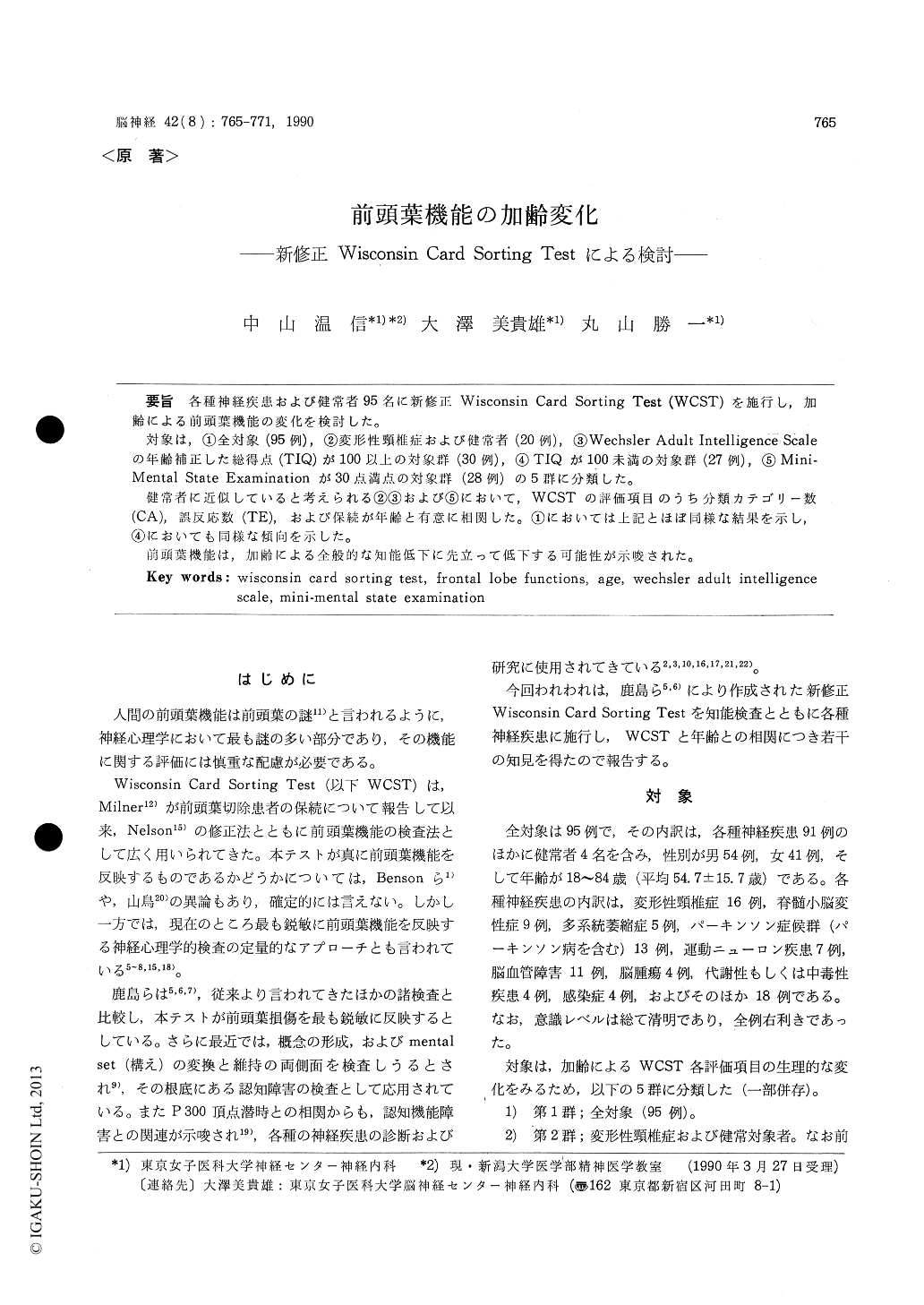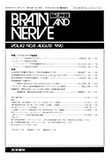Japanese
English
- 有料閲覧
- Abstract 文献概要
- 1ページ目 Look Inside
各種神経疾患および健常者95名に新修正Wisconsin Card Sorting Test(WCST)を施行し,加齢による前頭葉機能の変化を検討した。
対象は,①全対象(95例),②変形性頸椎症および健常者(20例),③Wechsler Adult Intelligence Scaleの年齢補正した総得点(TIQ)が100以上の対象群(30例),④TIQが100未満の対象群(27例),⑤Mini—Mental State Examinationが30点満点の対象群(28例)の5群に分類した。
健常者に近似していると考えられる②③および⑤において,WCSTの評価項目のうち分類カテゴリー数(CA),誤反応数(TE),および保続が年齢と有意に相関した。①においては上記とほぼ同様な結果を示し,④においても同様な傾向を示した。
前頭葉機能は,加齢による全般的な知能低下に先立って低下する可能性が示唆された。
New Modified Wisconsin Card Sorting Test (WCST) was administered to ninety-five individuals to assess the effects of age on frontal lobe func-tions. The correlations between ages and scores were evaluated in the following five subgroups which were classified into whole subjects (TOL, n= 95), normals and patients who were neurologi-cally diagnosed as only having cervical spondylosis (NOR, n= 20), individuals whose age-corrected total intelligence quotients (TIQ) by the Wechsler Adult Intelligence Scale were higher than or equal to 100 (HIQ, n=30), individuals whose TIQ were less than 100 (LIQ, n= 27), and individuals whoseMini-Mental State Examination scores were full (MMS, n=28).
Scores of the WCST including Categories Achieved, Total Errors, Difficulty of Maintaining Set and Perseveration were significantly correlated to ages in four groups such as TOL, NOR, HIQ, and MMS. The correlation of WCST's scores of the four groups indicated almost the same tendency. Some subcategories of the WCST, indicating per-severation which were characteristic signs of the frontal lobe dysfunction correlated with ages inthese four groups. The groups indicating NOR, HIQ, and MMS were thought to be regarded as being normal controls. And, the scores of Mini-Mental State Examination were not correlated with ages. So, the WCST scores of the MMS group were no thought to be effected by the age-related decline of intelligence.
The results might suggest that the age-related decline of the frontal lobe function precedes that of intelligence.

Copyright © 1990, Igaku-Shoin Ltd. All rights reserved.


